Meet DOMi & JD Beck, the Gen-Z duo reinventing jazz fusion: "The only time we went into an actual studio was to record Herbie Hancock's piano"
The virtuosic duo on recording the year's most exciting jazz release with no more than a drum kit, a laptop, two microphones and a 49-key MIDI keyboard
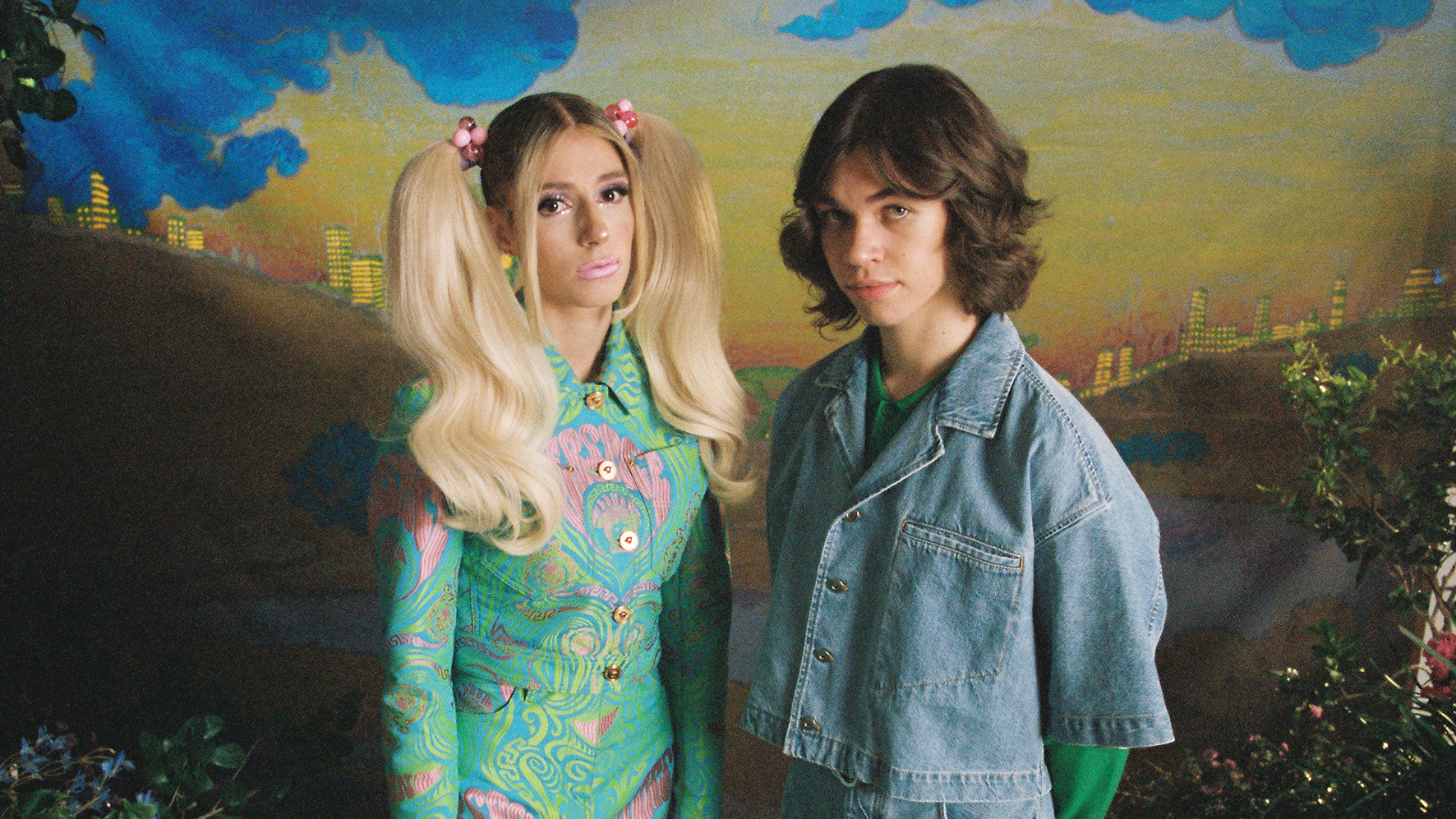
Want all the hottest music and gear news, reviews, deals, features and more, direct to your inbox? Sign up here.
You are now subscribed
Your newsletter sign-up was successful
Visit Gen-Z jazz wunderkinder DOMi & JD Beck's website, and you’ll soon find out that the pair are Nobel Prize-winning quantum physicists and “sheep investigators”, best known for the body-building masterclasses they regularly share on social media, and their penchant for “combining major 3rds and major 4ths.”
It may be delivered with a wink and a nudge, but this utterly bogus biography tells us something essential about the refreshingly irreverent duo. Though they evidently take their craft seriously enough - you probably have to if you’re going to score features from Herbie Hancock, Anderson .Paak, Thundercat, Busta Rhymes, Snoop Dogg and Mac DeMarco on your debut album - the pair don’t take themselves too seriously, a quality that singles them out within the wider jazz world, a genre that can sometimes suffocate the uninitiated in its sincerity.
Barely out of their teens, Domitille Degalle (22, keys) and James Dennis Beck (19, drums) have practically catapulted themselves to success, thanks to stupefying instrumental chops, heaps of personality, and a preternatural ability to pen electrifying jams that unite the giddy complexity of ‘70s jazz fusion with the groove-heavy boom-bap of Dilla and Madlib, and a self-produced sonic palette that's all their own.
As if the all-star features weren’t impressive enough, consider that DOMi & JD had played with Erykah Badu and Ariana Grande, inked a deal with .Paak’s label and Blue Note subsidiary APESHIT INC., and co-written a cut from his and Bruno Mars’ Grammy-sweeping Silk Sonic project, all before putting out their debut album, NOT TiGHT.
And what an album it is. With little more than a drum kit, a laptop, two microphones and a cheap 49-key MIDI keyboard, DOMi & JD have created one of the year’s most exciting jazz records. By coupling their head-spinning harmonies, breakneck rhythms and instrumental fireworks with hooks, choruses and features that bring the best of pop and hip-hop into their colourful universe, the duo are reinventing jazz fusion for a new generation.
Taking it right back to the start, how did you guys get into playing music originally?
DOMi: “We don't come from musical families at all, but my parents loved jazz records. They would listen to some stuff, pretty basic stuff, but I was born into that. When I was two, my dad built a drum set, made out of pans and pots, all that stuff. And then they had this really terrible electronic keyboard from like, 1999 or something. It was really bad. But I grew up on that, just playing jazz and classical.”
Want all the hottest music and gear news, reviews, deals, features and more, direct to your inbox? Sign up here.
We heard you met at NAMM. What’s the story there?
DOMi: “Yeah, we did. We have a mutual friend that asked us to play in a little booth for in-ears. We've never worn in-ears before! We had the most terrible setup. JD was on an electric drum set. I was on a little shitty 49-key keyboard, it was terrible, so we were laughing the whole time.
"We’d just met and then we decided to go to a real jam session. So we drove to LA and we went to play, and we were like, holy shit. We like playing with each other. So yeah, we never stopped.”
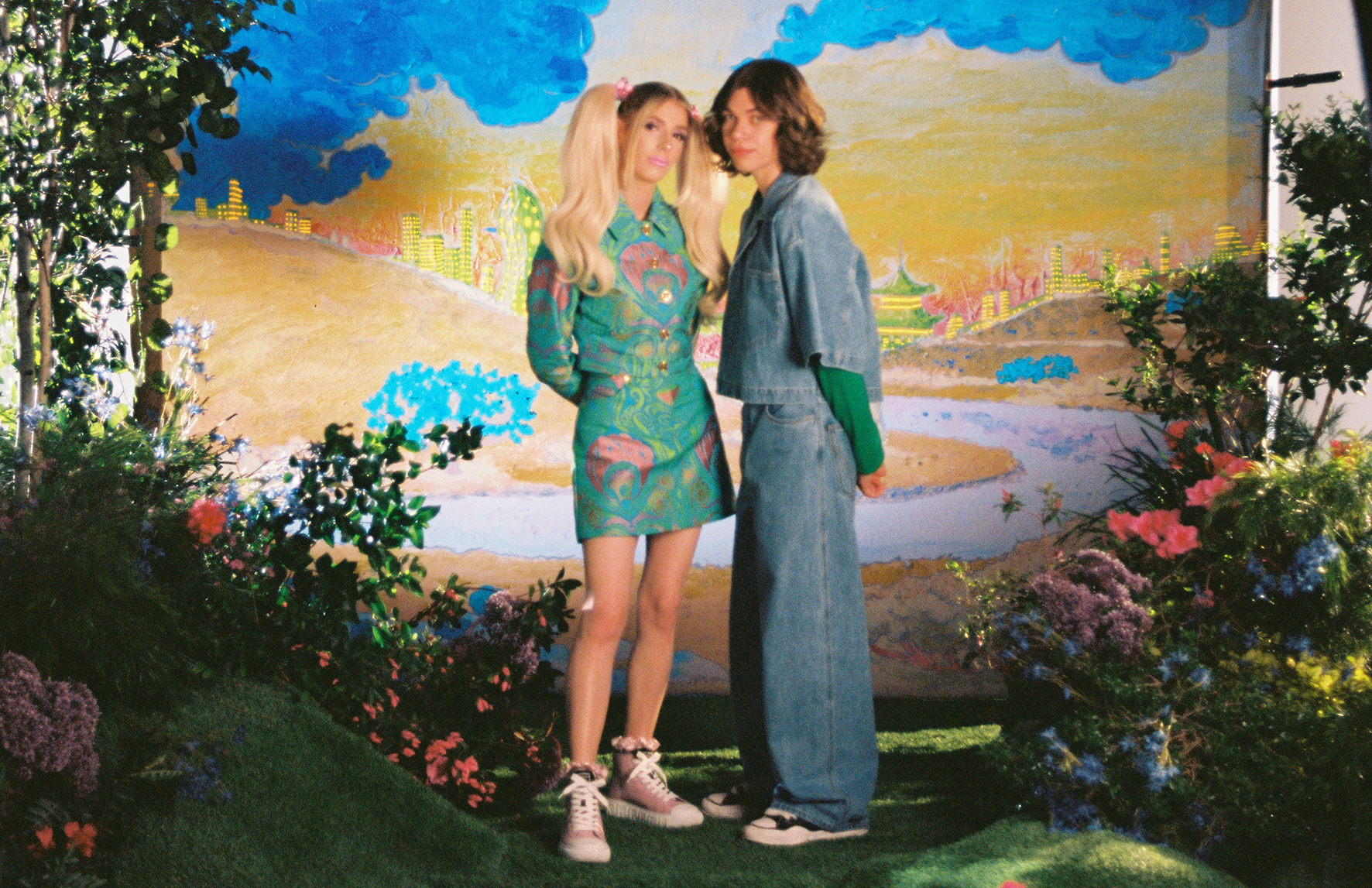
What was it that drew you to each other’s playing? Did you hear a similar approach or style?
JD: “No, I think it was just the intent. The way we wanted things to come out, and the way we talked about music and the way we heard things. Because we came from two completely different sides of music, at least when we first started. I think we just felt something, and hopefully it’s right!”
DOMi: “We didn't even really think, it was so natural. We had the same vision with what we wanted to do musically, and when we played it was so easy. It seemed easy.”
We’re curious to find out more about your writing process. Are the songs coming out of improvisation and jam sessions? Or do you take a more structured approach?
DOMi: “Actually, we never write by playing. Because when you play, your brain is using your muscle memory. It's on autopilot. So you're going to write what you usually play already. You enter your own loophole of how you already sound and it’s harder to explore different things. It doesn’t work for us.”
Sometimes it's really tricky because you put too many notes in a chord, and you’re like, oh, fuck, I only have 10 fingers!
“For example, NOT TiGHT, the first song we’d ever written, it was us on the computer, and we’d sing to each other top notes and chords, and then we would click them into the software, into Logic.”
JD: “That’s how we wrote pretty much everything on the album. That’s how we still write today - we pull it straight from our heads, and then we have to learn how to play it.”
DOMi: “Sometimes it's really tricky because you put too many notes in a chord, and you’re like, oh, fuck, I only have 10 fingers!”
That’s cool. So you’ll sit in front of the computer and use Logic as a canvas to get down your ideas?
JD: “Yeah, that or Sibelius. I think a lot of the stuff we write is just a little insane, so people think it's improvised. But really the only improvisation on the album is little solo sections, like the end of BOWLING, or the section where we trade on NOT TiGHT, or the second half of WHAT UP. We never really improvise pieces. We like songs. You know, we listen to The Police all the time. Like real basic stuff.”
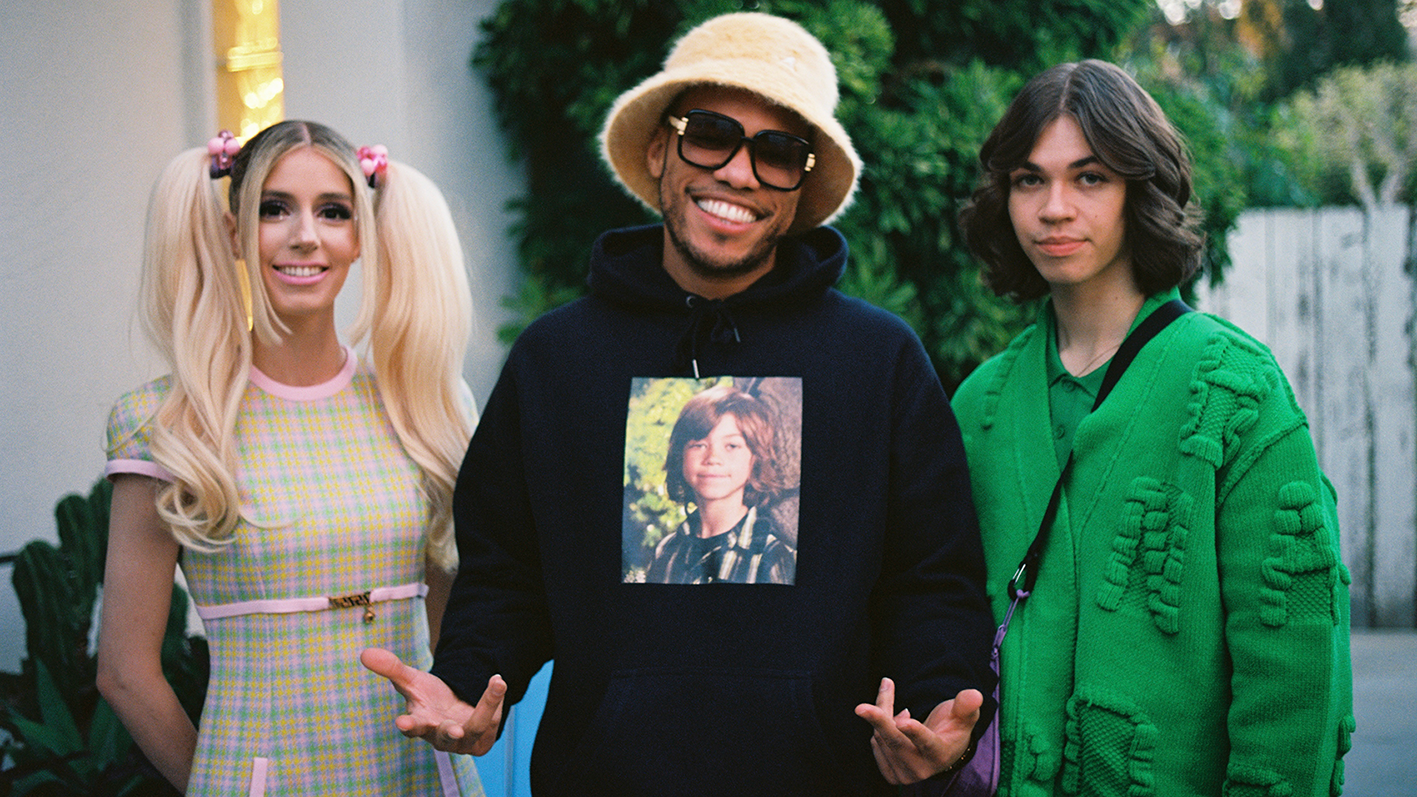
Which song from the new album was the most fun to record, and why?
JD: “I think the most fun to record musically was probably MOON, because we had so much pressure. We were so nervous to write a song for Herbie, and that was like the first time we ever had to write a song specifically for someone else. I think that just made it stressful in a way that got us excited to record.”
Do you feed off the pressure?
JD: “Yeah, I think it helps in a way. I also think there's pressure no matter what you do, whether you're on camera, or whether you're recording, or you're on stage. I think it's good pressure. It's something we can't really think about.”
DOMi: “If it gets the best out of you, then it’s good. With MOON, we were so excited and nervous at the same time. So it was like, okay, let's do this! That was really fun.”
Could you each name an influence on your music that people may not expect?
JD: “Led Zeppelin.”
DOMi: “Beach Boys. It depends on what type of person would not expect it - some people wouldn't expect us to listen to Frank Zappa, some people wouldn't expect us to listen to Chick Corea.”
JD: “Some people wouldn’t expect us to listen to The Police either. But I listen to that all day.”
DOMi: “We just listen to everything pretty much. We never say no before listening, and you have to give it multiple chances.”
JD: “Except country. We don’t really listen to country music.”
So it’s safe to say you won’t be whipping out the banjo on the next album?
JD: “Oh no, we’re definitely pulling that one out. It’s up next. [laughs]”
Your music strikes a balance between musical complexity - lots of crazy time signatures, complex rhythms and harmonies - and fun and accessibility. Is that a conscious decision?
DOMi: “I think it was unconscious. Because even to ourselves, when we listen to music, we want tension and release, as corny as it sounds. And so when we play, we need some crazy parts and we need some chill parts.”
If you can be surprised musically, in a way that’s good, that’s the best feeling ever
JD: “I think we unconsciously chose the sound we have in our head, but I think we go for a certain sound. That’s just how it comes out. I think a lot of people think we like everything to be crazy, but a lot of times we get tired of fast parts or things like that, and that's when we decide to do something more chill. It’s just what we think the music needs. We're never thinking like, alright, well, now we have to be more accessible. That’s the last thing we’d do.”
DOMi: “It needs to feel good and to sound good. It needs to be interesting, because we get bored so easily with what we write ourselves too, and when we listen to music. But it doesn’t matter, the tempo or the style.
JD: “We like to be surprised. If you can be surprised musically, in a way that’s good, that’s the best feeling ever.”
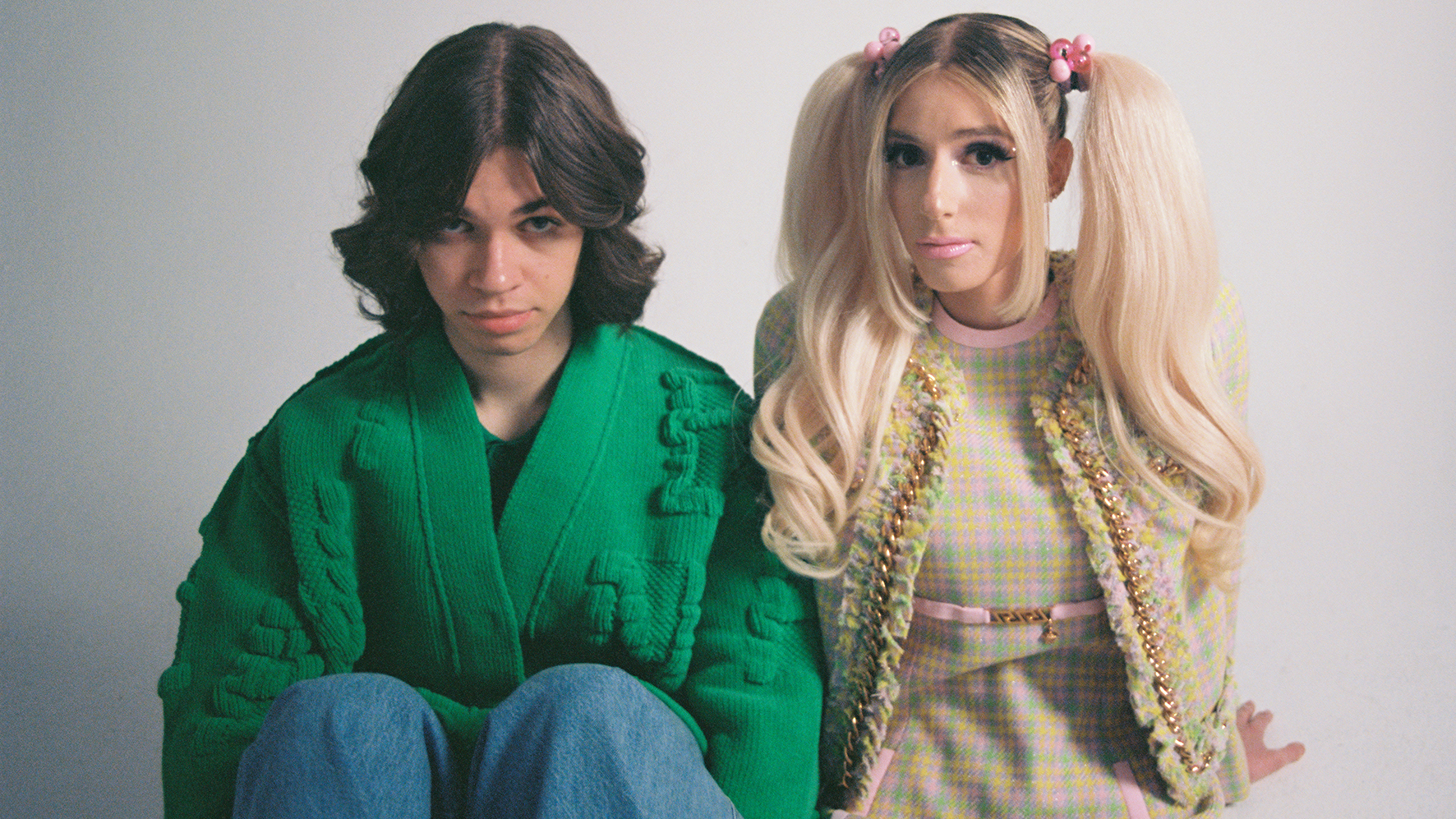
JD, your playing often brings to mind the detailed drum patterns found in electronic music, styles like jungle and breakbeat. Is that an influence?
JD: “It's actually the opposite. I learned about that stuff after people started comparing me to it, which is cool. I knew about Aphex Twin and things like that, but it was never stuff that I listened to to learn drum patterns from. At first, I started playing intricate stuff, and people would be like, ‘yeah, that reminds me of Squarepusher and Aphex Twin’, and then I got more into that stuff. I think I started learning more patterns from that stuff after people started getting on to me about it.”
On the record, your kit has a really tight, muted sound. Is that a tone you’ve always leaned towards?
JD: “I used to only play drums with a DJ, and certain small bands and stuff, so I would always have to make my drums more muted and quiet. I would play a lot of J Dilla stuff live and try to emulate those drum sounds, and it was all really dry. I grew up loving The Beatles stuff, and you know how dead Ringo’s drums are. I like the tone, but I love taking the weird percussive sides of drum sounds themselves.
We literally had a little coffee table with a laptop, a tiny 49-key MIDI keyboard and JD's tiny drum kit
”A lot of people want drums to sound as melodic as they possibly can, but I'm the opposite. I'm like yeah, fuck that. Let's make it as ‘drummy’ as it can possibly be. Like a smack on the wall or something.”
DOMi: “You can hear everything that way, when it’s super dry. You can really pay attention to the details.”
JD: “When I would play on other people's drums, especially gospel drummers and things like that, where it's super big and open, I would play the stuff I like and it would just be so wet. I couldn’t focus on myself, you know?”
Which musicians would you say have influenced your playing styles the most?
DOMi: “Off the top of our heads I would say Thundercat, Jon Bap, Knxwledge, Madlib, and of course, J Dilla.”
JD: “That’s when it comes to music. But for players, for me it was Cleon Edwards, Deantoni Parks, Chris Dave, Tony Williams and Elvin Jones. Those are the only drummers I’m still really obsessed with.”
DOMi: “For me, it’s Brad Mehldau, Keith Jarrett, Herbie Hancock and Oscar Peterson.”
Where was the album recorded?
JD: “There's a few different places, but it was always in a tiny room, no matter where it was. When we were in LA, it was in a tiny room where we just had our drums and keyboards right next to each other. Then in Dallas, it was in an even smaller room than the LA one.”
DOMi: “Half of it was done in a tiny room in Dallas. We literally had a little coffee table with a laptop, a tiny 49-key MIDI keyboard and JD's tiny drum kit.”
JD: “LA was the same thing, it was just a bigger room.
DOMi: “The only time we went into an actual studio was to record Herbie Hancock's piano. But we didn't do it. It wasn't even for us, it was for him to record.”
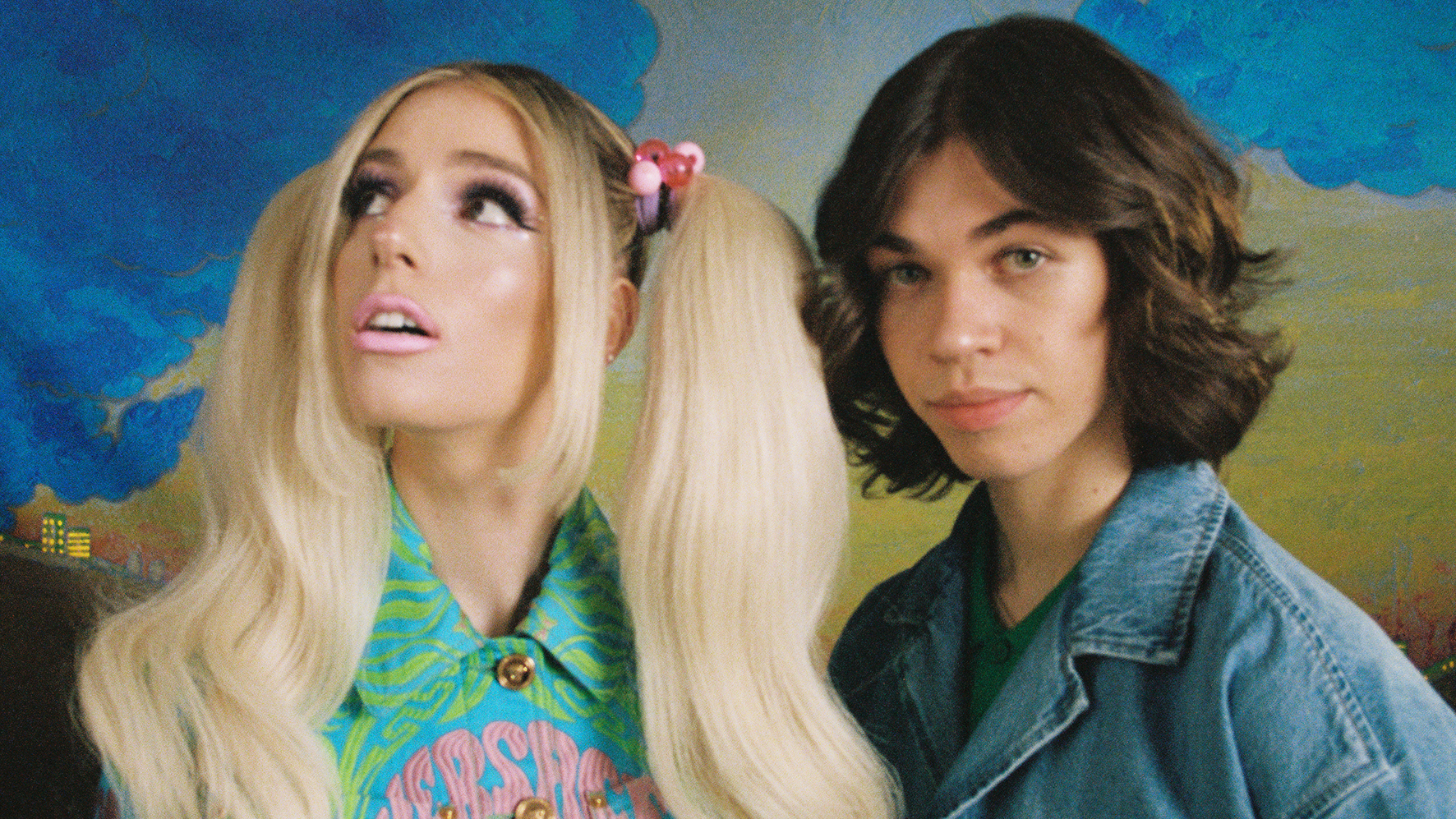
So you self-produced the album?
JD: “Yeah, it was all us.”
And you were using Logic?
JD: “At first it was Logic, when we would come up with demos and stuff. But we used Ableton to record. The workflow in Ableton is just way faster. I heard something where some people were making a joke, but they're like, ‘I exported the same thing in Ableton as I do in Logic, and it just hits more!’ I was like, shit, maybe you're right. Let's try it. And I think we just got stuck on it.”
Do you think there’s any truth to that?
JD: “No, it's not true. It's just the way you mix things in Ableton, it’s easier to make mistakes, and I think people like their mistakes a little bit more than they would admit, in Logic. Because I think Logic is so clean. I don't know, it's hard to say.”
DOMi: “You can make anything sound good. Ableton was just easier for us.”
JD: “Yeah, literally. Louis Cole uses Garageband.”
Could you talk us through maybe one or two pieces of equipment that were fundamental to the making of the new project?
DOMi: “99% of the whole album - all my bass, keys and everything - was recorded on a 49-key MIDI keyboard, the M-Audio Keystation. It’s all plugins. Keyscape and Omnisphere.”
Some of it was recorded with an iPhone, so we had fun mixing it...
JD: “Omnisphere is the shit. Spectrasonics, they really know what they’re doing. For me, I used a lot of tape emulation stuff, but I wouldn’t try to do that tape-y, lo-fi sound, I’d use it for compression and distortion. I like the way tape saturates, because it's not like it's clipping, it's kind of like, almost squeezing, in a certain way.
"I always thought that was so sick, like phase distortion. I think that's on my drums, like on every song on the record, and probably every channel of the drums. All the drums are recorded with one overhead and a kick mic. That's it.”
DOMi: “JD needs to admit that some of it was recorded with an iPhone, so we had fun mixing it... [laughs]”
JD: “That’s true. Some of the drums are an iPhone mic.”
Was that for the sound or was it just for the convenience?
JD: “It’s both, it’s sound and convenience. I thought, if I can pull this off, that’s tight. Sometimes I would come up with an idea, and I’d have to record it quickly with the iPhone, but then I’d listen back to the voice memo and be like, oh yeah, this is the part. I just need to use this.”
There’s no reverb on our album whatsoever, except for vocals, and maybe like one snare
“I'm actually so excited by the response of the record. I think The Needle Drop, Anthony Fantano, he reviewed the album and he was saying the album is so dry, he critiqued the mix. And even though he didn't like it, I was like, that's awesome.
DOMi: “That’s what we wanted.”
JD: “Because the record before we mixed it was so wet and fucked up that that you couldn't hear half of the shit we were playing. So I was like, sick, we did a great job. It was one of those critiques that actually made me feel better.”
So that was the sound you were aiming for?
JD: “Oh yeah. People hide behind effects and shit, I’m tired of that. There’s no reverb on our album whatsoever, except for vocals, and maybe like one snare.”
DOMi: “We just didn’t want to hide behind anything. People are not used to listening to dry music anymore, they need a shit ton of effects and a bunch of shit that’s not really necessary. So we were so happy to hear that.”
JD: “We don’t want the instruments to sound produced, like something it couldn’t sound like live. We wanted to write stuff that we couldn't play live, but we never wanted it to sound like stuff we couldn't play live.”
Was there no temptation to record in a big, expensive studio?
DOMi: “Oh yeah. We wouldn’t be comfortable in a big studio.”
JD: “We play ten times worse when we’re on camera or in a studio. I don’t know what it is, we suck every time that happens. So we try to not do that, as much as possible.
DOMi: “There's really no point anymore. You can do everything at home. You can get a friend to help you, or whatever, if you need to.”
JD: “I would rather record the album on stage, live, than I would in a studio. We need to be in a room, we need windows, we need to be able to see nature, we need it to be pretty, we need, like, a cool kitchen nearby. That would be the shit, that’s the ideal recording set-up.”
There’s a lot of collaborations on this album. What is it about collaboration that you find creatively stimulating?
DOMi: “Every collaboration is different. For example, we wrote BOWLING with Thundercat, so we were all on his couch. That was so cool.”
We don’t know where our sound is going to take us - but it's gonna be fucked up
JD: “That was like the first song we ever did with anyone that wasn't just us. After that, we would make instrumentals, and that's how we got Mac DeMarco on a song, because we were like: this needs vocals, this could be so pretty. It was one of those things where we were like, if we want to listen to a full body of work, we want it to be cohesive, but we also want it to touch areas that we didn't think we could touch on. When we're live, we're limited to just us two, but when we're writing and we're recording, we have the ability to get anyone we want. It was one of those things where it's like, who could help us make the best possible music we could make?”
DOMi: “Everybody on the album except Snoop Dogg, Busta Rhymes and Herbie Hancock, were people that we already knew as close friends. We already had Thundercat, Kurt Rosenwinkel and Mac DeMarco before we signed with Anderson, then he helped us finish the record, in that way.”
Who else would you love to work with that you haven’t yet had the chance to?
JD: “We have a list for the second record. I don’t wanna put it out there and then it doesn’t happen, or to put it out there and it happens and it sucks, or something. You never know. It’s not going to be anybody that people would be like… why?”
DOMi: “DJ Khaled! [laughs]”
JD: “The second record, there will definitely be some people that you haven't heard before. This first record, literally all of our features are way more established than us. It’s our debut record. It was also a way of working with the generations after us. It's our chance to work with those people, and do stuff like that. But I think the second record is going to be more fucked up.”
DOMi: “We don’t know where our sound is going to take us, we don’t know yet.”
JD: “But I definitely will say, I can already tell it’s gonna be more fucked up.”
Could you be any more specific about what you mean by ‘fucked up’?
JD: “It was so funny. While writing the first record, we were listening to way more crazy music, and then we wrote music that was less crazy than the stuff we were listening to, and less crazy than what we’re normally used to playing. But now, we’re only listening to songs - very chill, simple stuff.”
DOMi: “So I can tell we’re going to write some fucked up shit. It’s gonna be terrible. [laughs]”
We understand you co-wrote Skate, the Silk Sonic track. Have you been invited to do any more work for other artists? Is that a route you plan to go down?
DOMi: “It has to make sense. We can’t force ourselves to write for people if we don’t like their stuff. That was different with Silk Sonic - we love Andy, we love Bruno, so it was such an honour. But we’re not gonna go and write some pop hits - it’s not us.”
JD: “We’re super lucky to be in a position where we can just do our own stuff. It’s really rare for musicians, especially lately. We’re going to take advantage of that as much as possible. The fact that we don't have to play gigs with pop artists and write 10 million songs and do all these other things - the fact that we just get to play and do our own music - that makes us want to do that even more. We want the kids coming up after us, who see us and see what we do, we want them to see that they can do the same shit.”
It's cool to be technically proficient, it's cool to come up with weird shit. It's cool to be yourself
DOMi: “And maybe we can have a generation that is not so much like, ‘hey, I want to be a singer and have 40 ghostwriters writing for me’. Maybe we want some real musicians, you know? Because that's been lost. There's not many instruments you see on TV, in performances and stuff, and they don't play. If we can bring that back more, like - hey, this is music, you can produce, you can be on your computer and shit, but you can also learn an instrument and kill it, you know? That would be really cool.”
JD: “Hopefully, kids can come up and see that it's actually cool - it's cool to be technically proficient, it's cool to come up with weird shit. It's cool to be yourself. That's really our goal.”
DOMi: “I wish we lived in a world where you don’t have to be cool to want to do something. We try to distance ourselves from that. But it’s really nice to see the younger generation - we had an eight-year-old kid coming to our show in New York. That’s so sick.”
DOMi, you’ve said elsewhere that your philosophy of life is not to take shit too seriously. Do you think people taking things too seriously - or taking themselves too seriously - is too common in the jazz world? Are you guys trying to change that?
DOMi: “I think you have to be serious in what you do - when you practice, when you write - but you don’t have to take yourself too seriously. You don’t have to try to show others, like hey, look at me, I’m serious. Your work has to be so powerful, and you have to be so confident in it, that you don’t have to play that role.”
JD: “We’re at the point in society where you don’t have to prove yourself. If you’re serious about your music, that will show, and you don’t even need to talk. People don’t need to know who you are anymore. You could be a crackhead in San Diego who makes the craziest music ever, and you could be as big as Frank Ocean and never show up at any shows, and people wouldn’t know otherwise.”
DOMi: “We have so many possibilities now, and ways to get where we want, that I don’t think seriousness is necessary any more. It comes with an ego and an arrogance sometimes, and that’s why I don’t like it.”
JD: “If people were more worried about doing something smart than being perceived like they’re smart, things would be so much better.”
DOMi: “It’s a facade, it’s all superficial. We need to go to the core of it, actually be serious with what you do - then you can have fun.”
DOMi & JD Beck’s debut album, NOT TiGHT, is out now on APESHIT INC.

I'm MusicRadar's Tech Editor, working across everything from product news and gear-focused features to artist interviews and tech tutorials. I love electronic music and I'm perpetually fascinated by the tools we use to make it.